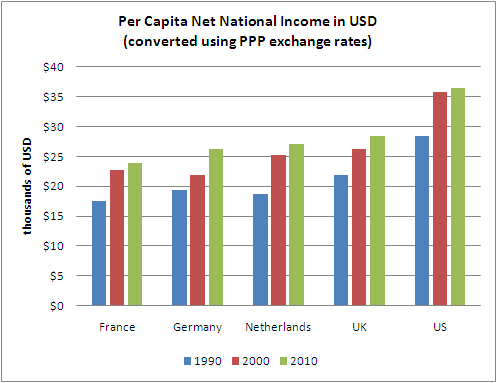Introduction of National Income:
National income accounting is the science of measuring the aggregate output and income of an economy. National income accounting was established in the 17th century when Sir William petty (1623-1687) tried to estimate the national income of England in 1665.
Definitions of national income:
National income means the income of country or total output of the economy during one year.
Simple definition of National Income:
“total market value of all final goods and services produced during a year by an economy”.
According to Paul A. Samuelson:
“it is the loose name we give for the money measure of the overall annual flow of goods and services in an economy”.
According to Prof. Gardner Ackley:
“individual income is the amount of his earnings from the productive services, currently rendered by him or by his property. National income is nothing more than the sum of all individual incomes”.

Interpretation of National Income:
thus national income can be interpreted in the following ways:
The market value of all the goods and services produced within the period of one year.
All incomes received or reward (rent, wages, salaries, interest, profit etc.) earned by all factors of production within a period of one year.
All sorts of expenditures (public and private) and the current production of goods and services including exports and imports.



